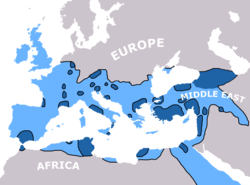No. Firstly, they were of French origin, from Lyons, which in the first century was called Lugdunum or more formally Colonia Copia Felix Munatia. After being excommunicated in 1186, they eventually settled in Piedmont (Italy). A man later referred* to as Peter Waldo founded the Waldensians as a lay ascetic movement called The Poor Men of Lyons similiar to how Francis of Assisi organized the Fransiscans. The Waldensians were like the Lollards in England, in that they attempted to form an order of traveling mendicant preachers (Friars) like the Dominicans, Franciscans, Carmelites, Augustinians, Servites, Minims, and Capuchins (and to a lesser extent, the Norbertines, Mercedarians and Trinitarians) at a time in the late 12th century when the idea of friars was emerging, with the next few decades seeing the formation of the Dominicans for preaching to Gnostic heretics and later, general preaching, the formation of the Franciscans, Servites and Minims and the repurposing of the Carmelite and Augustinian monastic orders primarily for general preaching, and the formation of the Trinitarians and Mercedarians for specialized preaching to raise funds to ransom Christians abducted on coastal roads by North African and Andalusian pirates and held captive in Morocco and on the Barbary Coast, for ransom, unless they converted to Islam.
Of these early friars, several groups, as the Papacy changed hands, were forced to reorganize or were temporarily suppressed. Even the formidable Knights Templar was permanently suppressed. The Lollards and Waldensians were birds of a feather in that the Lollards were loosely affiliated with John Wycliffe, and his middle English translation of the Bible, and the Waldensians



 brother, because I feel like I’ve nearly worn out my fingers typing that information to people. So it is very nice indeed to see a learned member such as yourself take some of the strain of explaining these simple realities of church history. God bless you!
brother, because I feel like I’ve nearly worn out my fingers typing that information to people. So it is very nice indeed to see a learned member such as yourself take some of the strain of explaining these simple realities of church history. God bless you!